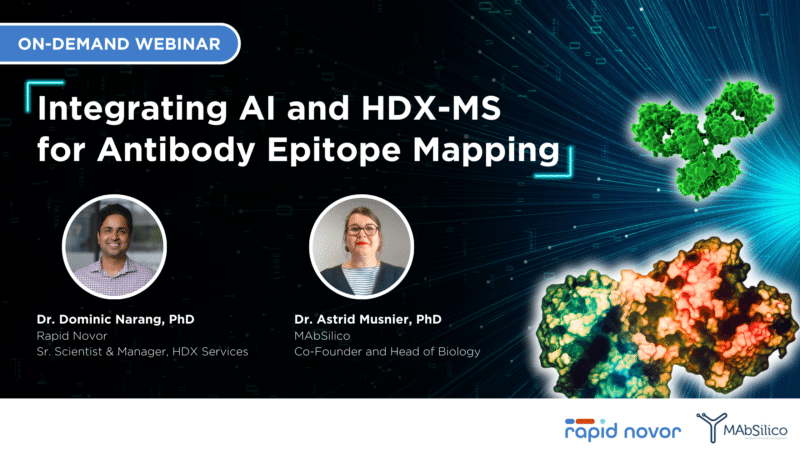
In this webinar, you will learn:
- How AI and HDX-MS are applied in screening, epitope mapping, and selecting neutralizing antibodies against SARS-Cov-2.
- The predictive capabilities of AI computational modeling and its validation and refinement by high-resolution HDX-MS.
- How the integration of AI with HDX-MS informs antibody characterization for the accelerated development of therapeutic antibodies.
Abstract
Artificial intelligence (AI) and computational modeling have emerged as powerful tools for predicting antibody epitopes and structures, leveraging vast datasets and algorithms to simulate antibody-antigen interactions. This predictive capability is complemented by in vitro validation using hydrogen-deuterium exchange mass spectrometry (HDX-MS), enabling high-resolution epitope mapping and elucidating other structural details of antibody-antigen binding.
Here, we demonstrate the application of AI and HDX-MS in screening and characterizing neutralizing antibodies against SARS-CoV-2 from an antibody discovery campaign involving healthy, vaccinated donors.
Computational modeling was used to screen over 700 mAbs from the discovery campaign, selecting 16 mAbs for expression. This led to the identification of 12 binders, including 4 high-affinity binders and 1 cross-neutralizing antibody against several SARS-CoV-2 variants. HDX-MS epitope mapping confirmed the binding epitopes, providing crucial structural details on antibody-antigen interactions and revealing further insights into antibody function.
The integration of AI and HDX-MS facilitates comprehensive and precise antibody epitope mapping, enabling high-throughput screening and invaluable insights into antibody specificity and function.


